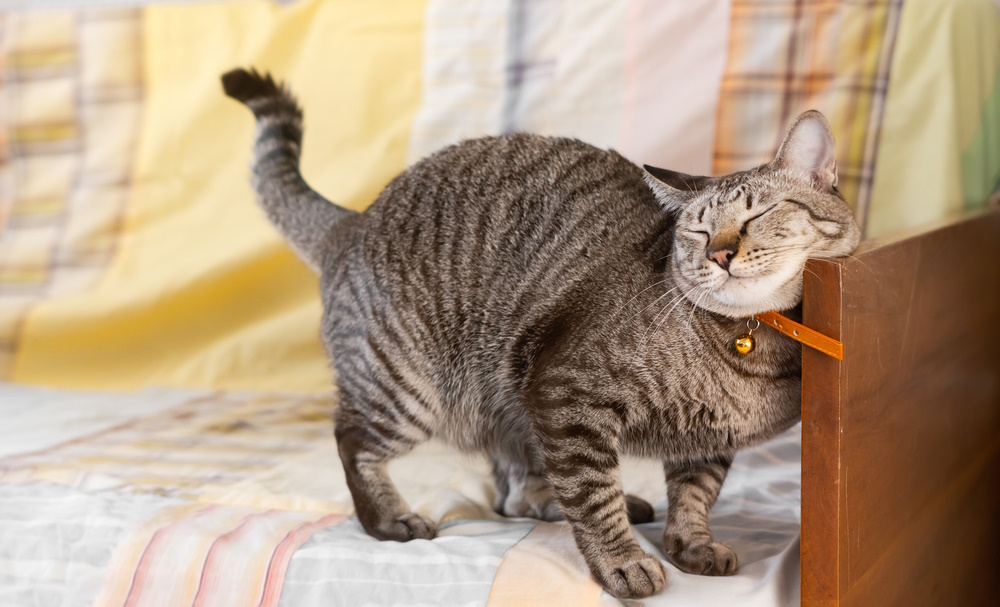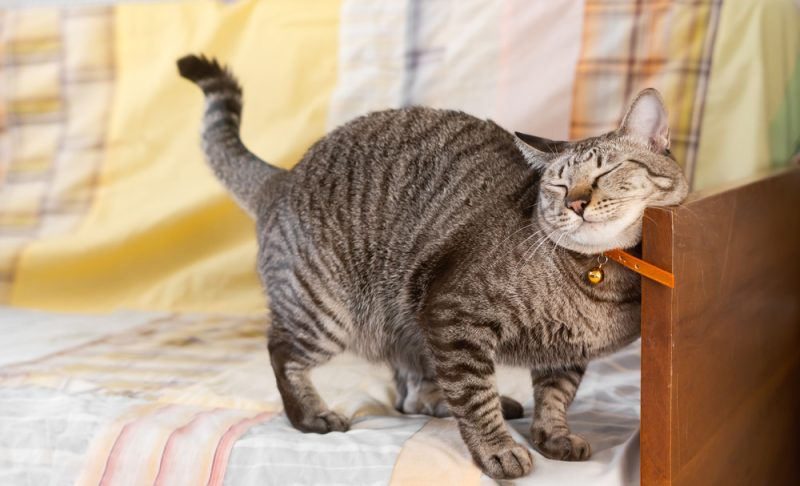Cats can do certain things that leave us feeling puzzled. One common behavior that cats often engage in is rubbing themselves against people and objects. It’s not quite clear why cats will do this, but cat behaviorists and experts have some speculations about this strange behavior.
Sometimes, rubbing against other things is normal and healthy cat behavior. There are also cases when it’s compulsive or unhealthy and requires veterinary attention. Here are six possible reasons why your cat may rub against you or other items in your house.
The 6 Possible Reasons Your Cat Rubs Against Things
1. A Form of Greeting
Cats often greet their owners when they’ve returned home after a long day. They’ll usually head over to the door and start weaving in between your legs. It might be accompanied by purring or happy meows. Your cat may also continue to follow you around the house as you settle in.
Cat owners can feel flattered when their cats greet them with some face rubs. It means that your cat is happy to see you and glad that you’re home.
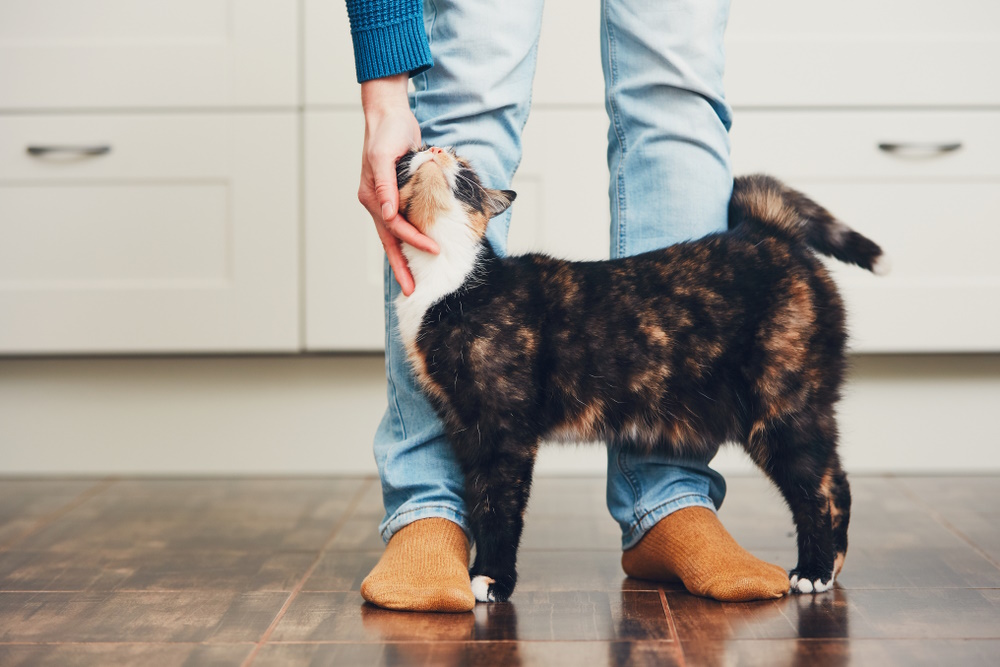
2. Marking Their Territory
Another common reason why cats rub against things is to mark their territory. By rubbing against you or objects, your cat is transferring their scent onto them. This indicates to other cats and animals that they have already claimed these objects with their scent.
Sometimes, cats will rub other animals or humans with their scent to indicate that they all belong to the same group. Cats in cat colonies will often produce a “group scent” in this way so that they know who belongs in their group. Usually, cats will rub their faces against people and animals and rub their sides and tails against inanimate objects.
3. Showing Affection
Many cats like physical contact and enjoy getting pets. They also won’t go near anyone that they haven’t identified as a safe person or friend. Therefore, they may rub against you as a way to show affection. It’s a sign that they like you and trust you and that you’ve won their favor.
Cats often feel comforted when they smell their own scent on things they’ve rubbed. So, they might continue to rub their scent on you as a means of identifying you as a comforting presence.
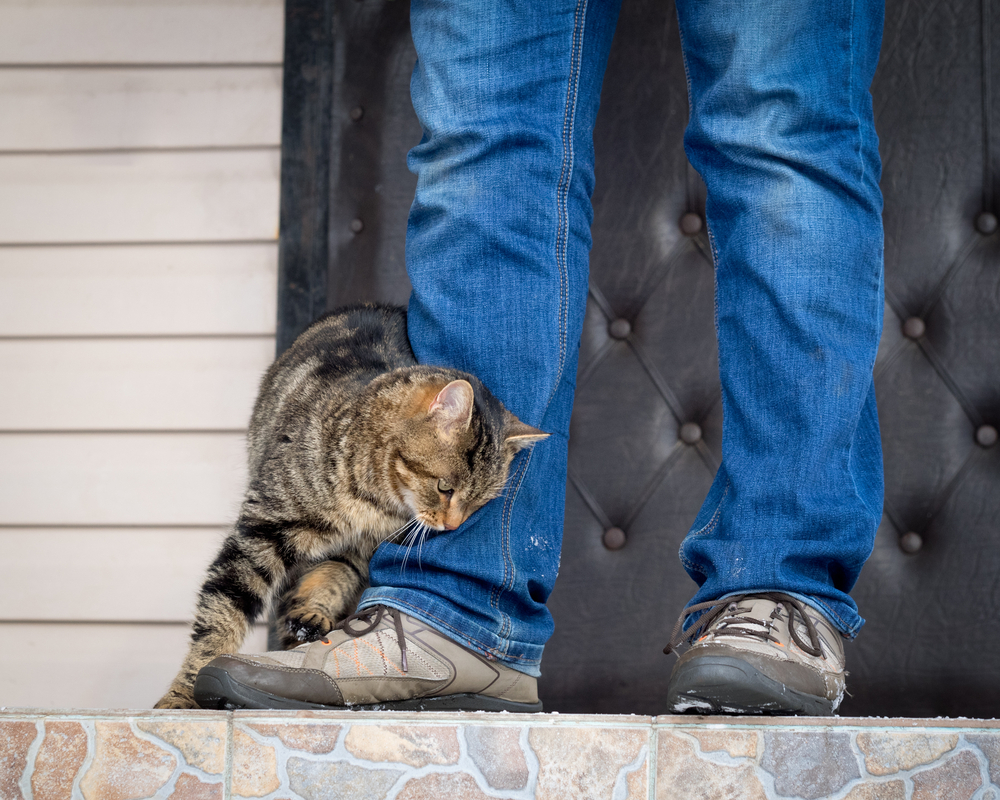
4. Distributing Natural Oils
Cats are self-groomers and often do a great job of taking care of their skin and coat with minimal assistance from their owners. They groom themselves to clean dirt and debris from their coats. Their skin also produces natural oils, which they can distribute throughout the rest of their skin and coat. These natural oils are distributed throughout the skin and coat when cats lick themselves or rub against objects. You can also help your cat by brushing them weekly, as brushing is an effective way to keep your cat’s coat clean and healthy.
5. Gathering Information
Rubbing can also be a way for cats to gather new information. This action enables them to get close to you and detect any scents you might’ve picked up as you’ve been going about your day. You may notice your cat doing this when you’ve met with other people or have come in contact with other cats or pets.
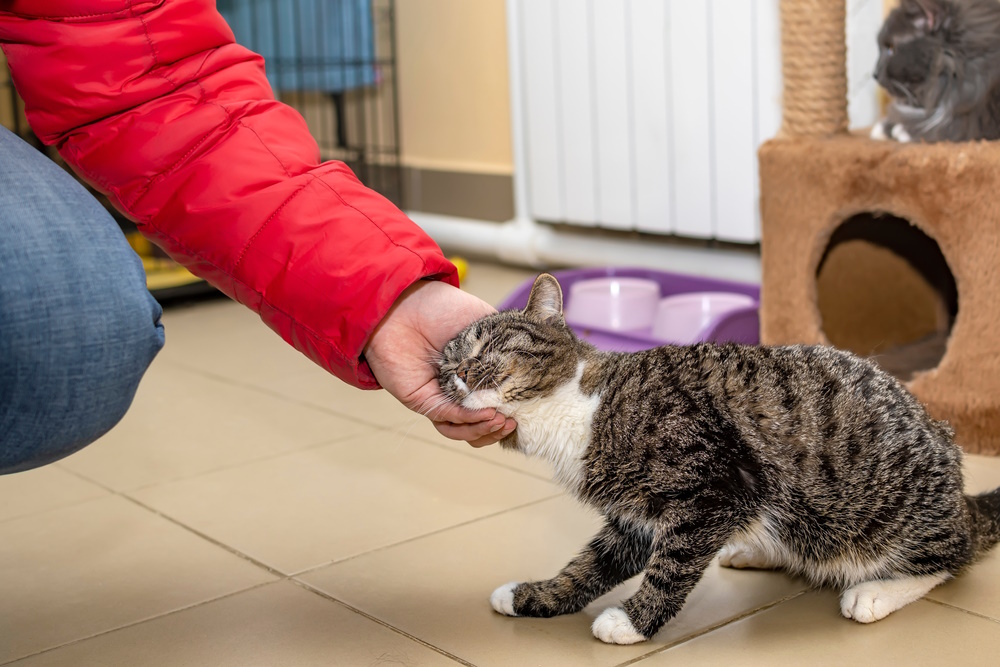
6. Asking for Something
Cats are extremely observant and are quick to pick up on things that get your attention. So, if you consistently give your cat attention whenever they rub against you or an object, they may be encouraged to do this behavior whenever they want your attention.
Pet cats will often rub against their owner’s legs when they’re hungry or want a treat. It’s also common for them to do this when they’re feeling energetic and want you to play with them.

Should I Stop My Cat from Rubbing Against Things?
While it may be strange to us, rubbing against things is normal cat behavior. Therefore, it’s often something that new cat owners just have to get used to. Just make sure to create a safe environment and remove any potentially dangerous objects that can hurt your cat if they were to touch it.
Sometimes, this behavior can be associated with an underlying medical issue or become a compulsive behavioral issue. For example, your cat may keep rubbing against you if they’re feeling anxious and are seeking comfort. In these cases, it’s helpful to identify what’s causing your cat to feel anxious or fearful. You’ll also want to schedule an appointment with your veterinarian to determine if the rubbing is compulsive behavior.
If your cat’s rubbing is linked to attention-seeking behavior and it interrupts or disrupts your daily living significantly, it’s best to work with a professional cat behaviorist or trainer. They can help you come up with a plan to reduce this behavior so that your cat isn’t interrupting your work meetings or getting in the way of you performing household chores and other tasks.
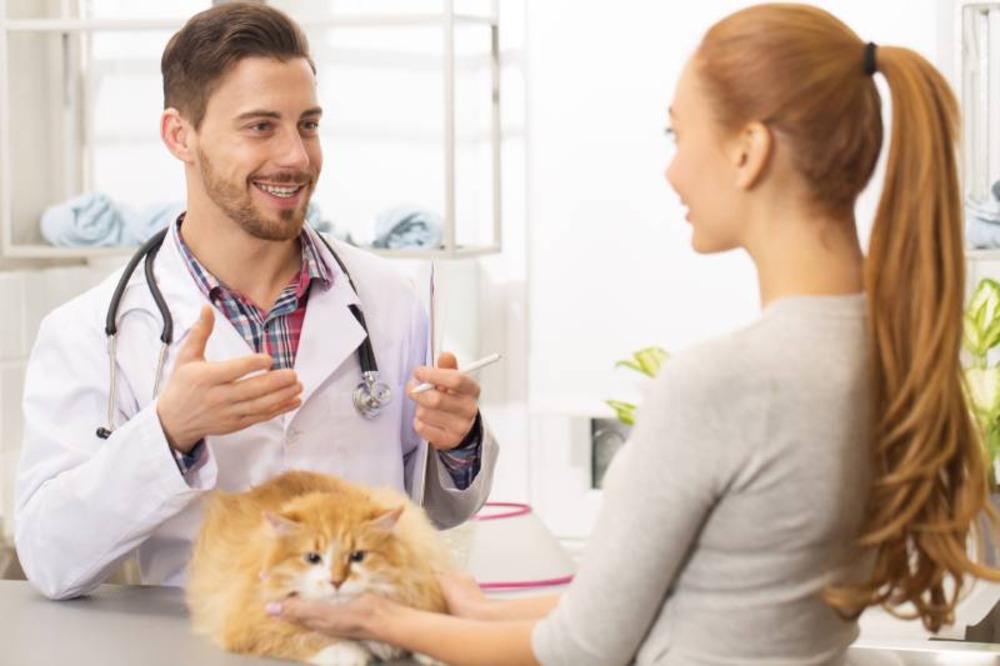
Conclusion
There are several possible reasons why cats will rub against people or inanimate objects. Sometimes, it’s a sign of affection or a way for them to get attention. It’s also important to note that excessive repetition of this behavior may be a compulsive issue. If you suspect that your cat is engaging in compulsive behavior, it’s best to consult a veterinarian to determine the cause. You can also work with a cat behaviorist to come up with a treatment plan to help your cat improve their quality of life.
Featured Image Credit: bombermoon, Shutterstock

